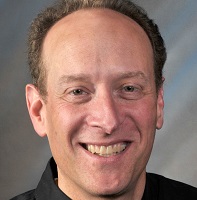There was an interesting compliance case study in baseball recently. Two players on the Cleveland Indians broke the COVID protocols and were sent home from a road trip. What the team did was to be expected. The rules were violated, and there was a potential health risk.
What was not expected was the strong public reaction of their teammates. Normally players tend publicly to come together. This time they didn’t. In fact, their comments were scathingly critical.
I began to wonder why these teammates were willing to speak up and if there were lessons to be learned. After all we’re in compliance and ethics too often see employees look away when there is wrongdoing and are forced to fight the tendency of employees to defend their colleagues.
Fortunately, I got the opportunity to ask two people who have great insight into sports what lessons could be drawn from the Indians incident. Billy Beane, the Executive Vice President of The Oakland Athletics and the subject of Michael L. Lewis’s book Moneyball, and the Houston Rockets General Manager Daryl Morey, who has been called “the Billy Beane of the NBA”, were speaking on a Zoom call I was able to listen in on. Lewis, who was moderating, chose to put my question to them.
Specifically, I asked how we could encourage more people to come forward when they see wrongdoing by their peers. Both Beane and Morey initially hesitated, with Beane even saying it was a question above his paygrade. He then went on to say that baseball teams are very much like a family, which gives them a lot more leeway, he believes, to self police. It’s an intense relationship, he reported, more so than is found at most workplaces.
Daryl Morey responded by first speaking about the human tendency to divide the world into “in” and “out” groups and to draw mental circles around these we consider to be inside our group. He then offered how to break down those barriers: “The only way to get self-policing is to have a leader connected to the larger goal and how it fits.”
Those leaders are emerging on the Rockets, he reported. Teams have been playing in a closed bubble thus far this season: players, coaches, select team executives and referees all living together, with no one from the outside allowed. The bubble is about to expand, though, allowing in family and friends. Senior leaders among the team’s players understand the big picture, Morey said, and have been saying “Guys let’s not screw up our chances to win the title by bringing the wrong people.”
Some of what Beane and Morey shared are lessons that we probably already know. First, we in compliance need to ensure that leaders understand what the larger goal is. Second, we need to help them see that following the rules, calling out bad behavior and reporting it help the organization achieve its goals.
But I’m most intrigued by a third point: we need to help people realize that even in a family, including a work family, there are times when you have to speak up. Unlike baseball players, you’re probably not going to be asked by a reporter to talk about how you feel when others do something they shouldn’t. But you do need to recognize that there are times when someone is hurting the family and enough is enough. It’s time to draw a line and speak up.
If we can help people to do that, it’s a big win for both compliance and the entire enterprise.


Great post, Adam.
Comments are closed.